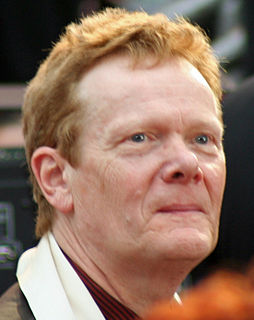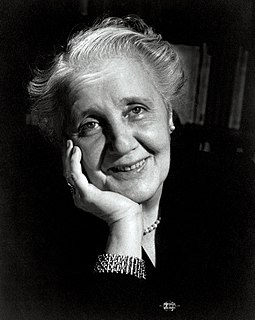A Quote by Ellen Key
The educator wants the child to be finished at once and perfect. He forces upon the child an unnatural degree of self-mastery, a devotion to duty, a sense of honour - habits that adults get out of with astonishing rapidity.
Related Quotes
An educator's most important task, one might say his holy duty, is to see to it that no child is discouraged at school, and that a child who enters school already discouraged regains his self-confidence through his school and his teacher. This goes hand in hand with the vocation of the educator, for education is possible only with children who look hopefully and joyfully upon the future.
I love child things because there's so much mystery when you're a child. When you're a child, something as simple as a tree doesn't make sense. You see it in the distance and it looks small, but as you go closer, it seems to grow - you haven't got a handle on the rules when you're a child. We think we understand the rules when we become adults but what we really experienced is a narrowing of the imagination.
Sometimes a child will get lucky and be placed with foster parents who are loving and supportive and who consider that child their own. But for many, that doesn't happen. Kids are moved around from home to home, to group home and institutions, until they are 18, when they are considered adults and the system is finished with them.
A child is a child in any country, whatever the politics. Let's get down to basics. That's what a child forces you to do. Nothing else much matters, there is no complicated diplomacy, when a child is starving. It's simple. And we'd better do something about it. For our sakes, too. That is, if we want to continue to call ourselves human.
we have to listen to the child we once were, the child who still exists inside us. That child understands magic moments. We can stifle its cries, but we cannot silence its voice.The child we once were is still there. Blessed are the children, for theirs is the kingdom of heaven.If we are not reborn if we cannot learn to look at life with the innocence and the enthusiasm o childhood it makes no sense to go on living.
The idea for me is that if the movie connects with you the way I want it to connect with you, you should be experiencing both the horror and the wonder as a child would. From a child's point of view. When we're kids, brutality registers differently than when we are adults. Because as adults, we get too used to violence.
A child is an eager observer and is particularly attracted by the actions of the adults and wants to imitate them. In this regard an adult can have a kind of mission. He can be an inspiration for the child's actions, a kind of open book wherein a child can learn how to direct his own movements. But an adult, if he is to afford proper guidance, must always be calm and act slowly so that the child who is watching him can clearly see his actions in all their particulars.
Friends serve central functions for children that parents do not, and they play a critical role in shaping children's social skills and their sense of identity. . . . The difference between a child with close friendships and a child who wants to make friends but is unable to can be the difference between a child who is happy and a child who is distressed in one large area of life.
Although psychology and pedagogy have always maintained the belief that a child is a happy being without any conflicts, and have assumed that the sufferings of adults are the results of the burdens and hardships of reality, it must be asserted that just the opposite is true. What we learn about the child and the adult through psychoanalysis shows that all the sufferings of later life are for the most part repetitions of these earlier ones, and that every child in the first years of life goes through and immeasurable degree of suffering.




































